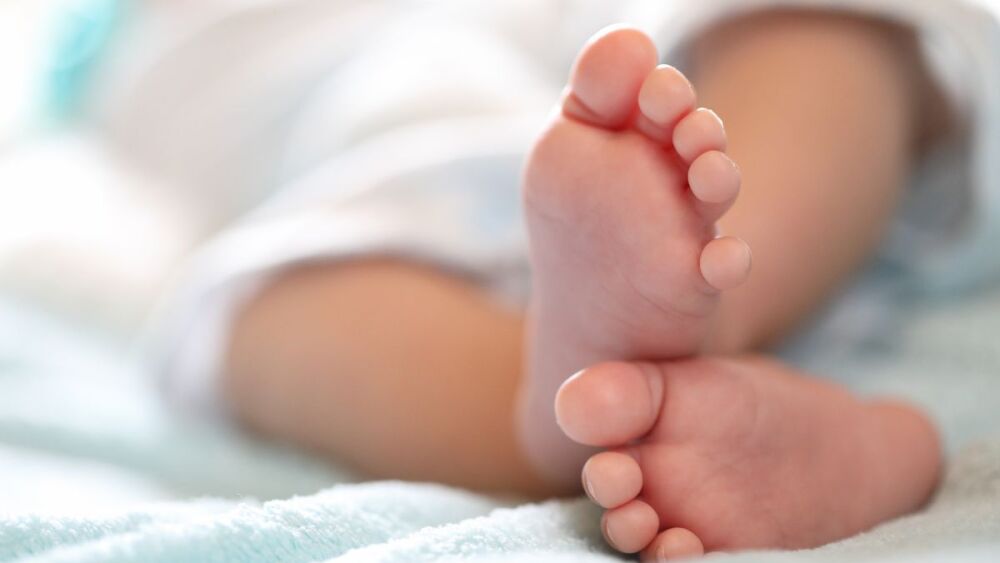A baby not breathing can be nothing, or it can be very, very bad. Most of the time, it is no big deal – a child holds their breath or falls and gets the wind knocked out of them or even has a febrile seizure, which is terrifying but usually not all that dangerous. Often our main job is to reassure relieved and somewhat sheepish parents who panicked and called 911 at the first sign of trouble. Most times we arrive to the sound of a baby’s howls, which is music to our ears.
‘Give me the baby’
We hope for the best each time we are dispatched on this type of call, and usually we are rewarded. Today a small child meets us at the sidewalk, and we take this as a good sign. We breathe out that one tense breath we were holding against unspoken contingencies. We assume this is the child in question, maybe 4 years old, but still a baby in someone’s eyes. She looks fine so, we figure, case closed.
She motions us to a side door, a basement apartment entrance. We amble down the walkway, prepared to reassure another chagrined mom.
The door opens and I am knocked backward by the look of the woman inside. She is screaming – and she embodies screaming. She is wild black hair and madness. And she is holding a baby.
I tell her, “Give me the baby,” and I must have said it right, because she does. Then I don’t see her anymore, or anyone, only the tiny, limp form cradled in my arms.
His cheek is just barely ashen, his skin still warm and soft as butter, his eyes closed. But there is no way to confuse this with sleep. His little arms hang loose and heavy at his sides, his head falls back and rolls to one side. This child is dead.
‘Something’s happened to Ollie’
We don’t accept death in children. That’s what we’re paid to do – rage against mortality, against accident and fate, and throw ourselves at this kind of catastrophe, believing our sheer will and desire can fix anything. We didn’t expect this, but we’re ready for it, and now we snap into auto-pilot, pulling airways and oxygen tubes from our medical kit, beginning two-finger compressions on the tiny ribcage, lowering my lips to the child’s face and forcing my breath into his lungs.
I am only aware of the periphery. The madwoman at the door is not the mother but a babysitter, and now she has asked someone if she should call the baby’s mother. She gets on the phone, and I hear her say, “Something’s happened to Ollie. Come here right away.” And she hangs up.
As I pump this child’s heart and puff air into his mouth, I picture a mother in an office somewhere, frantic at her desk, thinking, “He fell off a chair.” And stabbing her car keys into the ignition, thinking, “He was bit by a dog.” And accelerating through a yellow light, thinking, “He swallowed a marble.” There are so many possible disasters lurking for babies, especially first babies, that it is unlikely she got through all of them before she screeched to a stop in front of the quiet brick house, just in time to see me walking out of the basement with her lifeless child in my arms as I perform CPR on him.
Mothers imagine the worst, at least they think they do, but you can’t let yourself imagine that. It’s so awful, you wouldn’t even know how to visualize it, until now when it is a clear and indelible image in your mind, the first thing that will come to your mind forever when you think of your son, your only child.
The madness that has settled upon this house on this spring afternoon sweeps over you too, and you grab the closest person, who happens to be a police officer, and you grab him so hard, with so much unspecified rage and desperation, that you pull his buckled leather gun belt right off him, and his revolver and all the spare bullets spill into the street.
But I don’t see this. I am the eye of the hurricane, Ollie and I as one, with the world falling apart around us. It is simple – I breathe, I massage his heart, I hold him inches away from my own face in silent prayer, and he does absolutely nothing. In my heart I know what we later find to be true – this baby has died of SIDS (sudden infant death syndrome). No one really knows why it happens, and no baby has ever been brought back from it.
‘Sorry little guy’
It is the most quiet and definitive sort of death, but this means nothing to us. I work harder, running him into the emergency room where five more pairs of hands set upon him, injecting drugs, hooking up monitors, doing an ankle cut down to hunt for one last uncollapsed vein.
Six adults in a frenzy of activity, full of purpose, and then someone gives the sign – not a formal decree really, but just the smallest signal, and all at once it stops. The hands pull back and melt away, and all that is left is the tiny body on the oversized table, flaccid and cooling but still human, still there.
A nurse touches his perfect baby foot and says, “Sorry, little guy.”
And that’s the end of it. I get a ride back to the scene where my partner is still searching for stray bullets, and we pack up our gear, climb into our truck and drive back to the station.
We don’t say much. We’ve forgotten about lunch. It is comforting to go out and polish the truck, then spray water down the driveway for a long time.














